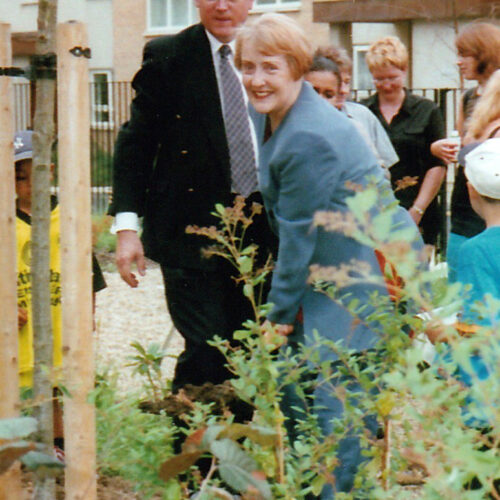

Humanism is a philosophy – one which gives us a coherent stance for living. We believe the humanist approach to living is a better one. And if we believe this, we each have a responsibility for actions which will make this world a better place.
Diana Rookledge, ‘Greetings 1986’ in Humanist News, January/February 1986
Diana Rookledge was an activist and organiser whose lifelong humanist values found expression across a vast range of personal and professional activities. In addition to a career in which fairness and equality were paramount, Diana became a key figure in the humanist movement at a point of major development. At various times chair of both the British Humanist Association (now Humanists UK) and the Humanist Housing Association, she was also a prominent voice for humanism on a local level, President of the Hampstead Humanist Society and a member of the Standing Advisory Council on Religious Education (SACRE) in Camden.
This biography and its accompanying photos have been kindly provided by Diana’s niece, Sharon Lockyer.
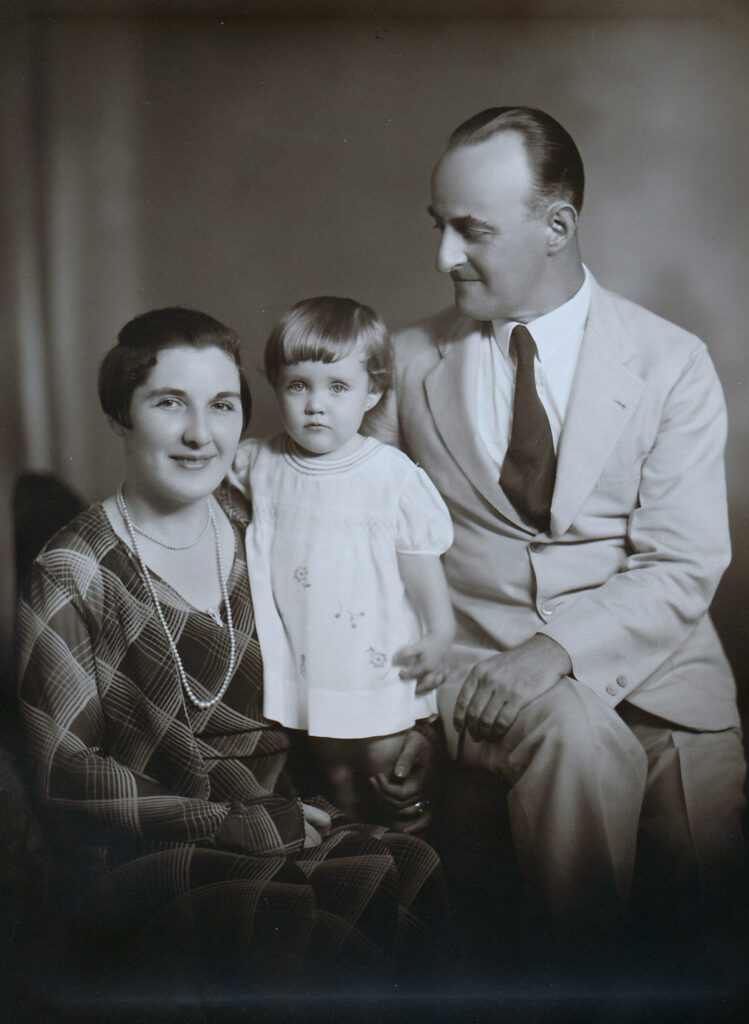
Early life and education
Diana Mary Margaret Rookledge was born in Singapore in June 1932, the eldest of three children born to Francis Oscar and Margaret Ogilvie Rookledge. Francis Rookledge was working for the Singapore Harbour Board as an engineer at the time, having served in the Royal Navy during WWI. The family returned to the UK in 1938 and settled in Dumfries, Scotland.
Diana attended Dumfries Academy, where she excelled in languages. She left the Academy in 1950, attaining the status of ‘Modern Dux’ in her final year. (In Scottish schools, ‘Dux’ denoted the pupil who most excelled at specific studies during the academic year. The other two categories that were recognised were Classical Dux and Science Dux.)
Diana went on to study at Edinburgh University where she achieved an M.A. in Modern Languages and, as part of her studies, she spent a year as an English Language teaching assistant at a college for girls in Provins, near Paris. She was fluent in French and German, and also studied Latin and Spanish.
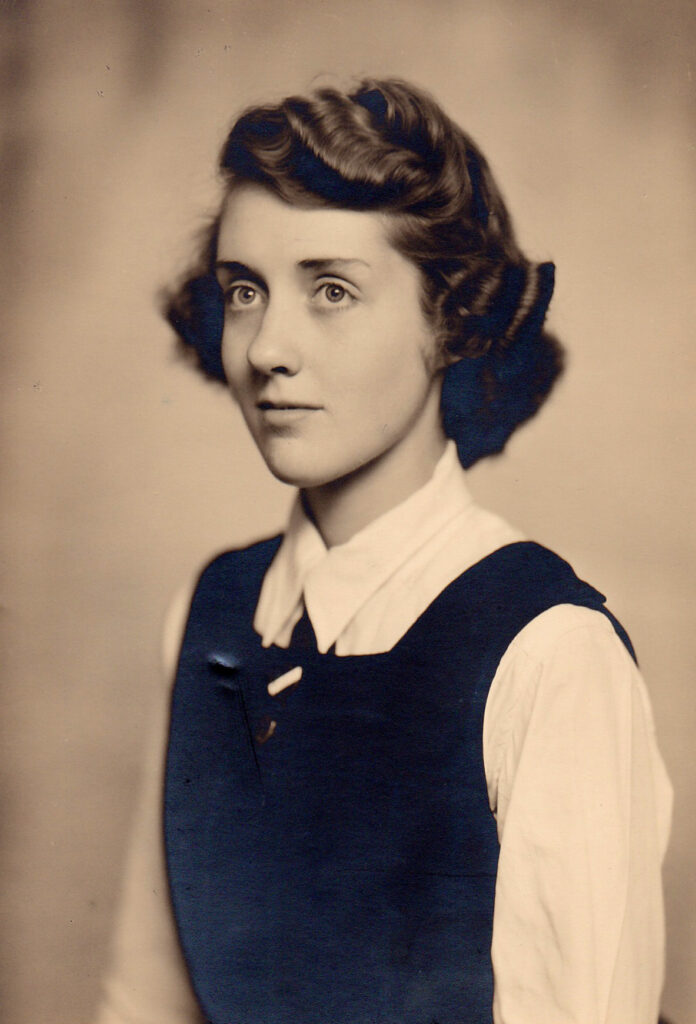
Career
After returning to the UK, Diana gained employment with Marks & Spencer in 1955, initially working in various stores. She was promoted to the Central Personnel Department after eight years with the organisation. Her two major assignments over the next couple of decades were a programme supporting the development of women in management and a move to Senior Executive with responsibility for many aspects of employee relations, including company personnel policies, salaries, employment legislation, and the development of anti-discrimination policies. During this period she also completed a diploma course in counselling, although she did not practise professionally. She retired from Marks & Spencer in 1988, having continued to work in Personnel (or Human Resources, as we would now call it) throughout her career.
Public appointments
Diana always had a strong belief in treating people fairly, particularly when it came to race and gender. This belief in equality, coupled with the knowledge and experience gained from her role with Marks & Spencer, led to a number of Public Appointments. Between 1975 and 1998 she was an adjudicator for National Insurance Tribunals, a commissioner for the Equal Opportunities Commission and a lay member of the Employment Tribunals team, for which she was also appointed to the Race Case Panel. She was appointed by the Master of the Rolls to sit on the Adjudication Committee for the Solicitors Complaints Bureau and appointed by the Privy Council as the Deputy Chair of the Complaints Committee for the General Optical Council. She was also a lay member of the HIV Advisory Committee, reporting to the Department of Health, and a member of the Home Office Committee of Enquiry into Deprivation of Citizenship.
In the 1990s, Diana was appointed by the Home Secretary to set up a new initiative – the Immigration and Nationality Department Complaints Audit Committee. For this particular project, she was awarded an OBE at the end of 1997.
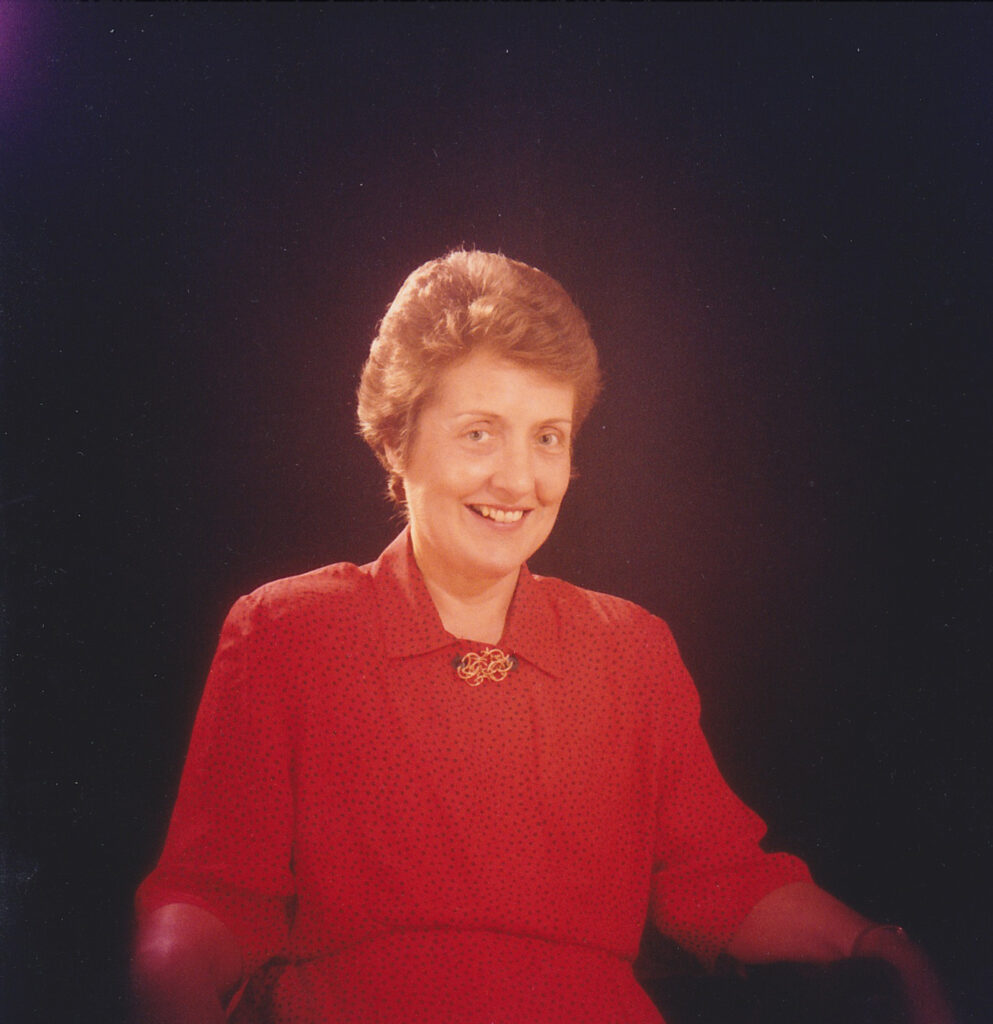
Work related appointments
Not all of these appointments ran concurrently, which is just as well as Diana also became involved in a number of work related committees, including Equal Rights and Social Services for the C.B.I. (Confederation of British Industry), the Personnel & Training Committee for the British Retail Association and the European Social Affairs Committee for the Retail Consortium.
In the two years leading up to her retirement, Diana was sponsored by Marks & Spencer to act as Assistant Director (Research & Training) for the Community Roots Trust for a year, and then seconded the following year to set up the Windsor Fellowship, an educational charity supporting and placing young black undergraduates hoping to have managerial careers.
Voluntary achievements
As if her professional life wasn’t busy enough, Diana also found time to get involved with organisations whose tenets aligned with her own. These largely revolved around humanism and gender equality. She held a number of positions with the Fawcett Society including five years as Convener of the Employment Committee and was also on the Board of Directors for the Rationalist Press Association.
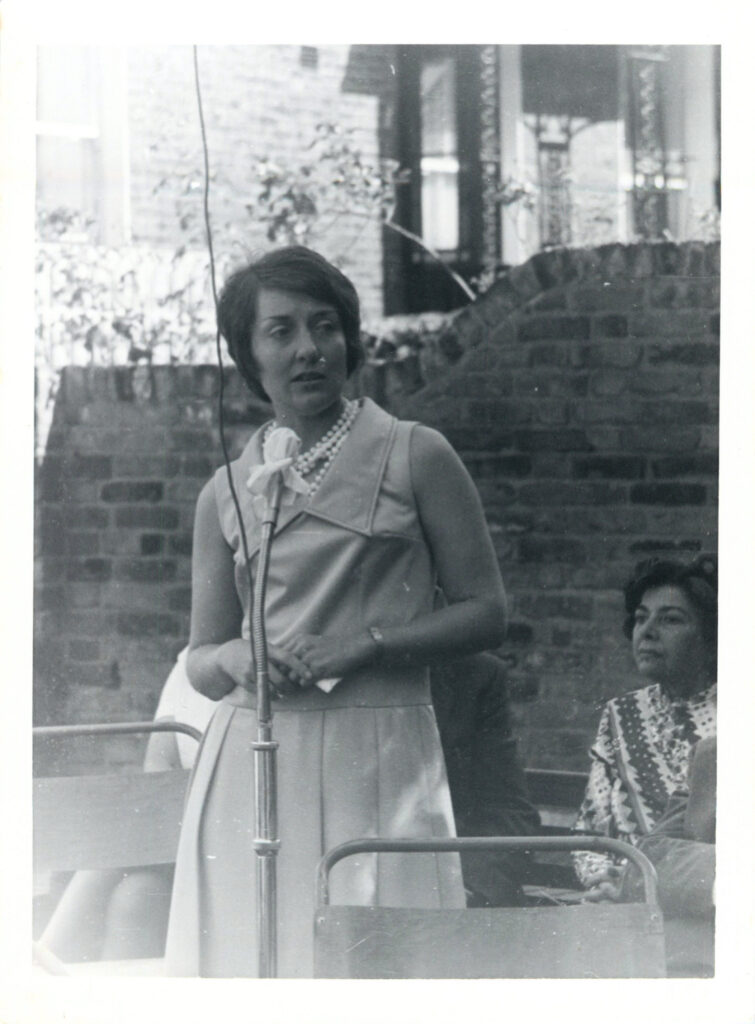
Humanism
Despite her mother’s strong religious beliefs, Diana considered herself a lifelong humanist, having rejected Christianity by the age of 14. However, she took time to research other religions before publicly declaring that she was an atheist.
She joined the British Humanist Association (now Humanists UK) in 1965 and remained actively involved for many decades, including as chair of the British Humanist Association 1984–1986 and of the Humanist Housing Association. She was firm in her argument that ‘decent housing is a basic human need and a basic human right. Far too many people in our rich society are without this basic requirement and they are often without a voice to demand their basic rights.’ (New Humanist, December 1991).
Diana was President of the Hampstead Humanist Society (founded as the Hampstead Ethical Institute), and a humanist member of the Camden LEA Standing Advisory Council for Religious Education (SACRE). She used her voice to argue fiercely for fair and inclusive education, and the role of community schools in building cohesion and mutual understanding. In a letter challenging the rationale of a new state funded Church of England school proposed for Camden in 2007, she wrote:
Let us all celebrate and learn from the multi-cultural, multi-linguistic and multi-belief society we are privileged to live in and stop splitting children up according to the claimed religious beliefs of their parents, or their lack of beliefs.
Her extensive involvement with the Humanist Housing Association (which merged with the St Pancras Housing Association in 2000) was acknowledged with the naming of one of its projects, Rookledge Court, Finsbury Park, in her honour.
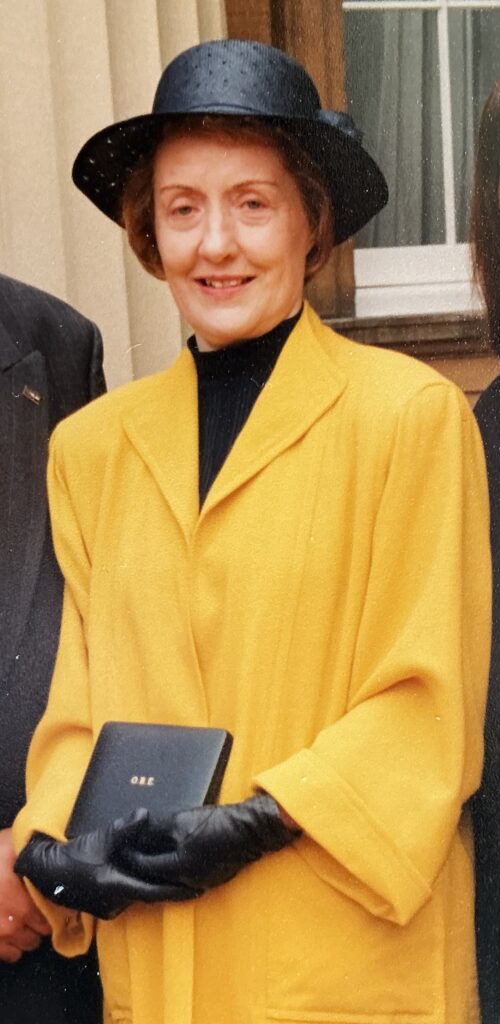
Other interests
Diana had a keen interest in history and archaeology and supported many organisations that care for and promote our knowledge of the past. Somehow, within her hectic schedule, she found time to complete a part-time course at the University of London and obtained a Diploma in Archaeology. She was invited to become a Fellow of the Royal Society of Arts and remained a Fellow until the end of her life. She was involved in the acquisition of the archive of Olwen Campbell for The Women’s Library at the LSE.
She loved to travel and did so extensively, often visiting countries that didn’t generally attract British tourists at the time. Many of the places she visited also satisfied her interest in history and archaeology and she took thousands of photos of historic sites ranging from China and Ethiopia to Mexico and Egypt. She was even lucky enough to visit the Galapagos Islands and returned with a number of blurry images of rare animals not quite staying still long enough for her to get that shot!
Her high profile within the corridors of power also meant that she had no fear of speaking her mind to politicians when she did not agree with their policies. Her archive of papers includes many forthright letters to a multitude of government ministers explaining in detail why they were wrong! Her local MP, Glenda Jackson, was on the receiving end of Diana’s opinions about all manner of subjects from local matters to global events and, to her credit, appears to have always taken time to reply.
Diana married eminent Egyptian historian and Egyptologist Okasha El-Daly in Egypt in February 1990.
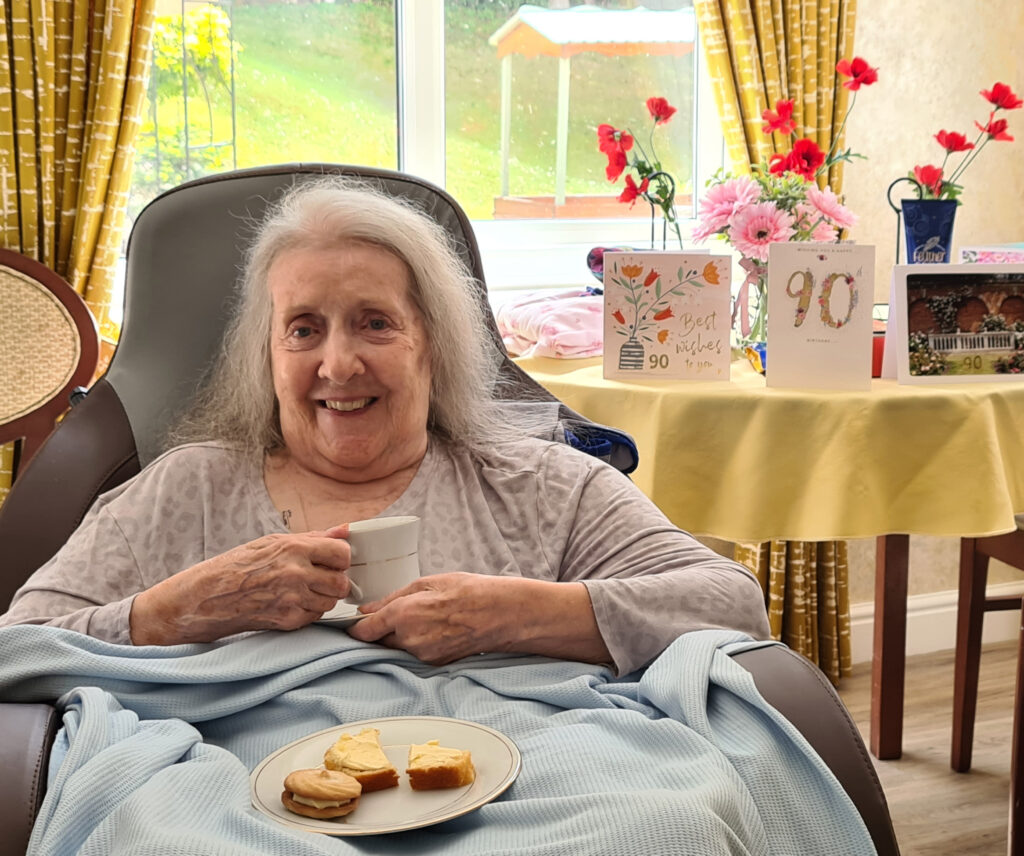
Television and radio
Despite being well-known to ‘the establishment’, she was rarely involved in broadcast media with two notable exceptions.
In November 1983, Diana was invited to appear on the BBC’s Question Time, hosted by Robin Day. She appeared on the show with MPs John Smith (Labour), Ian Gow (Conservative), and the former Deputy Leader of the Liberal Party, John Pardoe. Her appearance fee was £110.
In 1987 she contributed a talk entitled ‘A Humanist Approach to Government’ to the BBC World Service series ‘Insights into Humanism’. This series of programmes was well-received globally and, unusually, the producer later contacted contributors asking for their permission to provide script copies of their talks as they had received many requests for these from locations across Europe, Africa, the Middle East, and the Americas.
Later years and death
In the last few years of her life Diana’s health started to deteriorate and, after a diagnosis of dementia, she moved to a care home in Kent near to her nieces and sister-in-law. She was very well cared for in her final years and was able to celebrate her 90th birthday with a family tea party at the care home. She died of dementia related conditions on 9 December 2022.
Main image: Tree planting at Rookledge Court. Courtesy of Sharon Lockyer
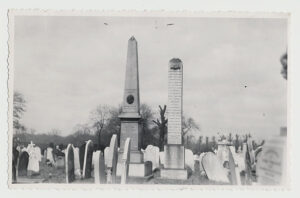
Kensal Green, opened in 1833, was London’s first commercial cemetery, and the originator of the city’s ‘Magnificent Seven’. These suburban […]
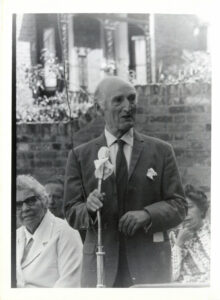
Faith without works is not Christianity, and unbelief without any effort to help shoulder the consequences for mankind is not […]
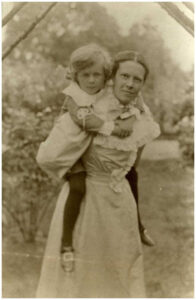
Julia Huxley was a feminist and freethinker, who profoundly influenced a generation of girls who attended the school she founded […]
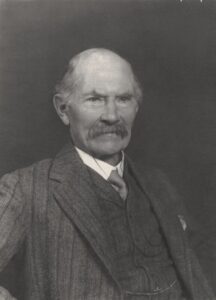
Throughout his life, Professor of Philosophy, John Muirhead, sought to put his ethical principles into practice. Indeed, whilst philosophers are […]